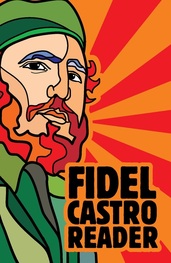The emergence of Donald Trump and Bernie Sanders as significant contenders for the nominations of the Republican and Democratic parties is a sign that US voters are increasingly disenchanted with the two traditional political parties and with mainstream political institutions, inasmuch as both Trump and Sanders are marginal members of their respective parties, and both adopt a discourse more to the Right and to the Left of their parties.
The growing lack of faith in mainstream politics indicates that the time may be ripe for a third party of the Left in the United States, as has occurred in Latin America, where new parties of the Left have been formed since 1995 and have captured control of governments in a number of nations, utilizing electoral procedures of representative democracy. The new parties reacted to and took advantage of the cooperation of national elites and their political pawns in the imposition of the neoliberal project by the global powers.
The neoliberal turn of global elites in 1980 occurred as a result of the structural crisis of the world-system, the first signs of which emerged during the 1970s. The crisis has been caused principally by the fact that the world-system has overreached its geographical and ecological limits. Since the sixteenth century, the world-system expanded through the conquest and domination of new lands and peoples, thus incorporating more natural resources, additional reserves of cheap labor, and new markets. But this mechanism for productive and commercial expansion has been eroded since the middle of the twentieth century, when the system reached the geographical limits of the earth. New technologies can increase productivity on existing land, and additional natural recourses can be discovered, but these possibilities do not provide for the sufficient growth of the system (see various posts in the section on the crisis of the world system).
But the effort by global elites to increase levels of exploitation through the imposition of neoliberal policies does not address the source of the crisis. Moreover, the neoliberal project has provoked popular rejection in both peripheral and core zones during the last twenty years, thus creating a situation in which the world-system is not only ecologically but also politically unsustainable.
Coinciding with the structural crisis of the world-system, the United States has entered a period of productive, commercial and financial decline relative to other core powers. Excessive military expenditures, rampant consumerism, insufficient investment in manufacturing, and uncontrolled financial speculation have contributed to its decline since the early 1970s. The decline of hegemonic core powers following their ascent to hegemonic dominance is a normal phenomenon. But the coincidence of the structural crisis of the world-system with the decline of the hegemonic core power, provoking its turn to unilateral neo-fascist militarism, has accelerated a global turn to chaos.
Political discourse in the United States lacks the capacity to explain the sources of the crisis of the world-system and the relative decline of the nation. So anxiety grows among the people. They increasingly are losing faith in mainstream political institutions. They are turning more and more to unconventional approaches, which in the case of the presidential primaries are represented by the candidacies of Trump and Sanders.
But neither Trump nor Sanders points to the necessary road. Trump’s discourse taps into fear and ignorance, and its ultimate logic would be a fascist order that would be far from democracy and social justice. Sanders heads in the right direction, but in a far too limited form. He has no discourse to explain the world systemic crises and the national decline nor to formulate a comprehensive national project that seeks democracy and social justice on a global scale. Furthermore, what is needed at this moment is not a presidential candidate representing one of the two established parties, but an alternative political party.
The success that Sanders has had with his superficial discourse of the Left does indicate, however, that the people may be ready to follow the lead of an alternative political party of the Left that seeks to take power and govern in the name of the people. That is to say, the people in the United States may be prepared for revolution, which would be the fourth stage in the American Revolution, the first three being the periods of 1763-1789 (establishing political independence), 1829-1876 (abolishing slavery), and 1955-72 (establishing fundamental civil and political rights for minorities and women).
If we follow the example of successful revolutions in the world of the past 100 years, a revolutionary party of the people of the United States would need an effective manifesto and platform. The manifesto would explain global historical dynamics, so that the people would be able to understand the crisis of the world-system and the national decline as well as the necessary constructive responses by the nation. The platform, on the other hand, would formulate specific proposals that would address the concrete needs of the people.
Whereas revolutions in other lands often have resulted in new constitutions, constitutional amendments would be more appropriate in the case of the United States. More than 200 years of constitutional continuity is a significant achievement, and it should not be cast aside. Moreover, the road of constitutional amendment is an historic legacy of the three earlier revolutionary stages of the US popular movement, resulting in the Bill of Rights; the thirteenth, fourteenth and fifteenth amendments; and the proposal in the 1970s for a constitutional amendment affirming equal citizenship rights for women. In the present historic moment, the revolutionary party should propose four constitutional amendments affirming: (1) that women have full constitutional rights; (2) that democratic rights include social and economic rights, such as education, health care, nutrition, housing, and a minimum standard of living; (3) that the foreign policy of the nation must respect the full sovereignty of all nations; and (4) that the government has the right and the duty to take measures necessary for the ecological balance of the earth.
Concrete platform proposals could include: reduction of taxes for the middle and working classes and a tax increase on corporations and the wealthy; the replacement of student loans with direct grants and the forgiveness of existing student debt; infrastructural investment to provide for needs in housing and urban public transportation and to provide employment; a minimum-wage increase; structures of community control to facilitate crime prevention, prevent police violence, and increase citizen participation; a domestic partnership law to ensure fairness for gay couples living together; expansion of structures supporting adoption and single-parenthood as alternatives to abortion, while affirming the principle of reproductive rights and the legality of abortion; universal social programs that provide support for persons in need, regardless of race, ethnicity or gender; an anti-imperialist foreign policy of North-South cooperation, with constructive proposals with respect to sovereign nations that have been demonized, such as Venezuela and Iran; cooperation with other nations in order to reduce illegal immigration, trafficking in human persons, and illegal drug trafficking; reduction of expenditures on high-technology military weapons, combined with the increasing use of the armed forces for emergency relief and construction projects throughout the world; expansion of government support for public television; and campaign finance reform, with the goal of eliminating the dependency of political candidates on the contributions of the wealthy.
The revolutionary party should have the long-range goal of seeking to capture the presidency and the Congress in a period of twenty-five years, cultivating allies in the judiciary and the military during this period. Its focus initially should be on the education and organization of the people, rather than on the election of candidates. However, in the short-term, candidates could be nominated in Congressional districts with favorable demographic characteristics, such as districts with high percentages of blacks, Latinos or Native Americans. Elected members of the Congress in these demographically favorable districts could play an important role in the education of the people throughout the nation with respect to the perspective, values, and proposals of the revolutionary party.
The revolutionary party should be launched when there is significant support for the new political party from prominent public intellectuals and personalities, including political leaders affiliated with the Democratic Party who are prepared to cast their lot with the new party, in consideration of the challenges that the nation and humanity confront in the present historic moment.
Key words: Donald Trump, Bernie Sanders, revolution, revolutionary party






 RSS Feed
RSS Feed





